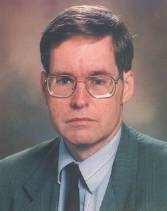January 1999
Distractions
By Michael J. Katin, MD
1999 has just begun and the most anticipated news story is how the Senate will handle the impeachment trial, while leaving its members able to deny their actions regardless of the outcome. The best way is to get out of having to hold a trial at all, and there is very innovative maneuvering going on right now to try to accomplish this. One of the major arguments is that holding a trial, which could take anywhere from several weeks to several months, will prevent the Senate from carrying out work on the legislation that it couldn't get around to last year (when there was no impeachment) or the year before, or the year before that. This will be a terrible distraction from the real job of the Senate, almost as terrible as the distraction from the fact that this column has less and less to do with radiation oncology. This job includes, of course, saving Social Security and reforming Health Care.
I had come to the conclusion, along with most of my colleagues, that straightening out Health Care is not to be accomplished in this lifetime, similar to finding something to rhyme with "orange." We can at least get some enjoyment watching each company go down the tube, with golden parachutes billowing. I have now realized, however, that persistence of the status quo is clearly hazardous to our survival as a species.
I have just received two large mailings from a managed care company. One is a directory of their services and providers, most of which are incorrect. The second is another directory, along with a letter stating that I had been sent the wrong one initially. The two are identical. A small tree sacrificed its pulp to allow these to be printed. More paper was consumed with this than I used in my first eight years of education. This is, of course, multiplied by all the recipients and with similar mailings also being generated by the other managed care companies.
Consider also the volume of paper used for applying and reapplying for credentials for each of these companies (explain, on a separate sheet of paper...) and signing the same waivers every year so they can obtain more paper from other people to verify that you are who you claim to be, or have successfully so far pretended to be. Consider further the volumes of medical records that need to be copied and recopied every time a patient has a change of primary physician (usually every 12.3 weeks) when the previous primary physician drops out of the program. Think of all the paperwork involved when a health-related company goes bankrupt or is bought by a temporarily more successful one. There cannot be fast enough logging of old growth forests to supply the paper to keep up with this.
It is obvious that we cannot continue to have a detached attitude about this problem. Our environment is in serious danger. Let's get this trial over with and let our Congress get back to what it does best.
P.S. This would not be categorized as a "win-win" situation.
email: mkatin@radiotherapy.com
